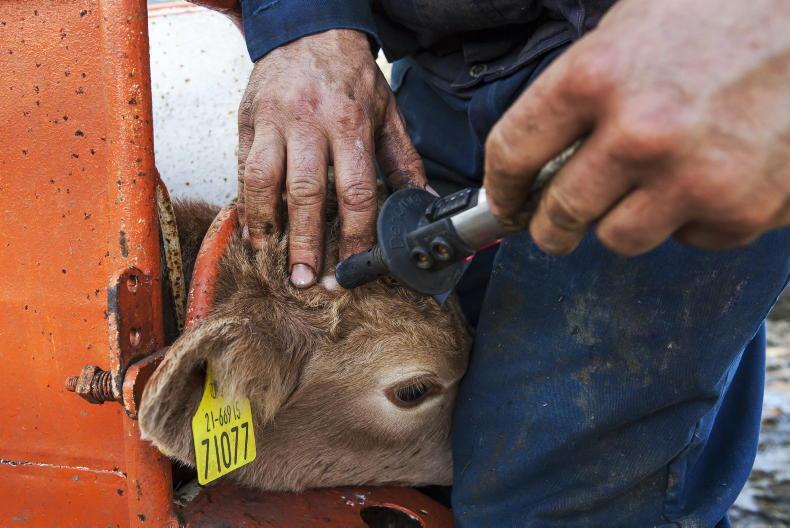Full details of new rules for the NI beef and lamb farm quality assurance scheme (FQAS) have been published by the Livestock and Meat Commission (LMC).
Colin Smith from the LMC said most of the changes were minor clarifications which aim to either make the rules clearer or bring the FQAS standard into line with other Red Tractor-affiliated schemes in Britain.
“We feel the standard largely remains fit for purpose. That’s why you are not seeing significant or wholesale changes,” Smith told Irish Farmers Journal.
Arguably the biggest change at farm level is the requirement for pain relief to be used for certain veterinary procedures, such as de-horning cattle.
Painkillers
Painkillers, known as analgesics, are used to relieve pain after a procedure. They differ from anaesthetics, which reduce sensitivity to pain during an operation, and are already required for certain procedures under existing FQAS rules.
Other changes to the FQAS standard include banning tethered housing systems and the addition of a “health and performance” review to the annual antibiotic usage review which is carried out in consultation with a vet.
Under new FQAS rules, if a farmer makes use of more than one veterinary practice, then details of all practices used need to be recorded in the animal health plan.
The revised standard, which comes into effect on 1 November 2022, also includes a new rule that “adequate feeding space must be available for all livestock”.
“The inspector won’t be out with a tape measure. They will be making an assessment on the day. It has always been done, but we have just pulled it out so it’s specifically mentioned in the standard,” Smith said.
Additions
Several new additions to the FQAS standard set out rules that are already a legal requirement for all farmers. For example, rules on livestock tagging, manure storage and fallen stock disposal.
Gillian Davis from LMC said all scheme participants will receive a summary of the changes over the coming days, along with hard copies of new record books and templates.
The full FQAS standard, which runs to almost 50 pages, will not be posted to participants but will be available on the LMC website.
“We have a helpline for anyone with questions or concerns about FQAS standards,” Davis said.
Carbon and grass-fed questions next year
Additional questions for calculating carbon emissions and verifying the grass-fed status of cattle are likely to be added to FQAS inspections next year, the LMC’s Colin Smith has said.
“We are working on designing the forms at the minute which are required to calculate carbon and grass-fed. We will test that near the end of this calendar year with a view to piloting it in the new year,” he said.
Marketing label
The grass-fed verification is required for a proposed marketing label for Irish grass-fed beef, known as a Protected Geographical Indication (PGI).
The carbon calculator has been spearheaded by various industry representatives to help demonstrate that NI beef is environmentally sustainable.
The LMC appears keen for the extra questions to add as little time and effort to FQAS inspections as possible.
“You only want one person going up the lane to gather all the information. We want to make sure it is efficient as possible and is done in a time scale that isn’t significantly onerous on the farmer,” Smith said.
“We will try to get as much information from APHIS and other sources as we can beforehand to minimise the input that we are asking for the farmer during the visit,” he added.






 This is a subscriber-only article
This is a subscriber-only article










SHARING OPTIONS: